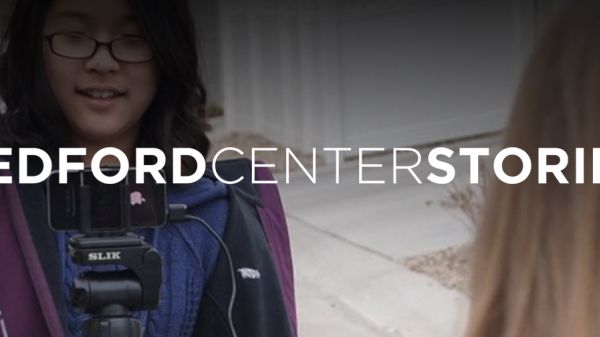Redford Center Stories Youth Film Challenge

Announcing Our 2021-22 Redford Center Stories Filmmaking Challenge
Attention students in 5th to 12th grades: The Redford Center invites you to tell your story, raise your voice, and help change the conversation about environmentalism and environmental justice to help move more people into action!
The film submission portal will open on February 28, 2022, and close on March 21, 2022. Read the information below to learn more about how to submit your film entry, our three filmmaking Challenge prompts, and the Challenge terms and eligibility.
Submission Guide
Please be sure to review the Challenge prompts and complete the required forms below before submitting your film. Click the submission form below for more information on how to submit your film and enter our 2021-22 Redford Center Stories Challenge.
Stories Challenge Submission Guide
2021-22 Redford Center Stories Filmmaking Challenge Prompts:
Prompt #1:
The future I envision is…
What do you envision for the future of our world and our environment? A vision statement is a powerful thing to imagine and share with others so that communities can come together who share similar goals and missions. They can be inspiring and energizing to collective action. The Redford Center envisions a world in equitable balance, where human and planetary health and justice are fundamental values driving action. What future do you envision? How can we work to make it a reality? It might be a letter/poem from your future self that tells us how you responded to the moment we are in.
Prompt #2:
I’m an environmentalist because…
This is your opportunity to stake your claim as an “environmentalist.” What are you fighting for? How are you investing in environmental justice, protection, and/or regeneration? What are you doing to meet the moment? You might share a story you’re moved to tell from your own community that reflects what environmentalism and climate justice looks/feels like.
Prompt #3:
A call to action.
Create a public service announcement (PSA) that creates awareness about, or shows the importance and impact of, a problem facing the environment, or the communities most impacted by the climate emergency. What do you want your audience to feel and to know? What behavioral change do you hope to people will make, and how can you help inspire this change? You might take the opportunity to tell the story of your environment (the good and the bad). Research/identify threats to your home town + solutions to address these threats. What solutions have been tried? What are things individual people can do? What systemic changes are needed? Provide a suggested solution and a tangible way to take action.
Required Forms
All Redford Center Stories Challenge participants must review and submit the following forms in addition to their film submission:
Stories Challenge Eligibility and Rules
Stories Challenge Creator, Copyright, Publicity, and Appearance Release Form
Stories Challenge Additional Actor Appearance Release Form
Storytelling Strategies
Approaches to storytelling that Robert Redford and James Redford employ and that serve as foundational elements for The Redford Center’s original storytelling work, including:
-Solutions-focused stories to offer a more hopeful view of the future and to help audiences understand how they can play a role.
-Telling stories through characters so that audiences can see themselves in the story and also be educated on how the issue affects them.
-Prioritizing entertainment and working to make the film fun, funny, surprising, enlightening, beautiful, emotional, musical, hip and more.
-Clarifying the impact goal of the story before starting a project.
-Creating nonpartisan stories, meaning that the story doesn’t align with one political ideology but rather appeals to universal values.
-Taking an innovative storytelling approach, including trying out risky ideas and using creative camera angles and other visual storytelling tools and techniques.
-Showcasing unlikely characters and stories so that all audiences, even those that don’t readily identify as environmentalists, see themselves as part of the story and the solution.




